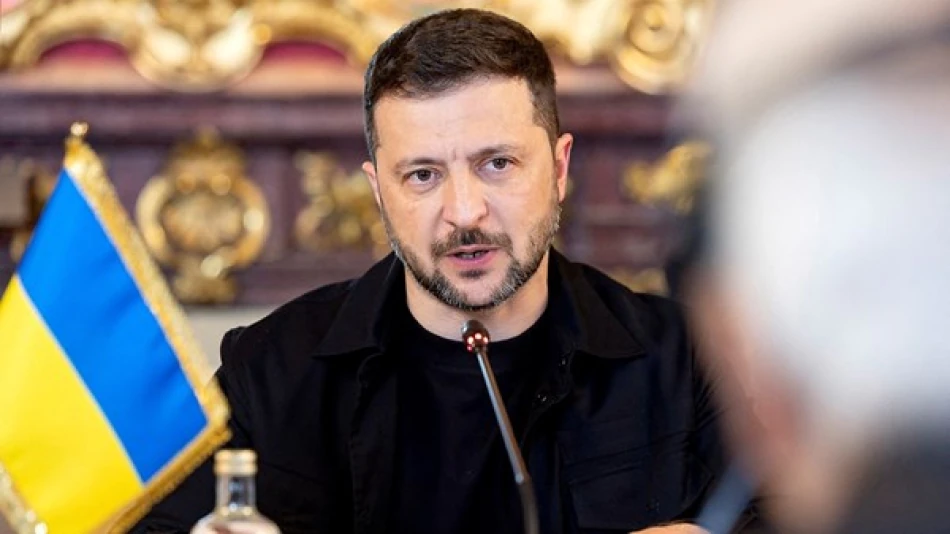
Zelensky Discusses Ukraine-Allies Summit in UK, Addressing Key Diplomatic Moves
Ukraine Pushes for Greater Control Over Peace Process as Allied Security Chiefs Meet in Britain
Ukrainian President Volodymyr Zelensky signaled cautious optimism following high-level security talks in Britain, emphasizing that any path to peace must include Ukraine as a central decision-maker. The meeting brought together security advisors from seven key Western allies, marking a critical juncture as the conflict approaches its fourth year with mounting pressure for diplomatic solutions.
Allied Unity Meets Ukrainian Sovereignty Concerns
Zelensky described Saturday's meeting as "constructive," noting that Ukraine's positions were "well heard" and that risks were properly considered. The gathering included senior security officials from Britain, the United States, France, Germany, Italy, Finland, and Poland—representing NATO's core Eastern European frontline states alongside major Western powers.
The Ukrainian leader's emphasis on joint decision-making reflects growing concerns in Kyiv about being sidelined in potential peace negotiations. His evening address to Ukrainians carried a pointed message: "The path to peace in Ukraine must be determined together, and only with Ukraine—this is a fundamental principle."
Timing Signals Shifting Diplomatic Landscape
The timing of this multilateral consultation suggests Western allies are preparing for potential diplomatic openings, even as military support continues. With the conflict now in its third year and seven months, economic pressures on European allies and evolving political landscapes in key partner countries are creating new dynamics around peace negotiations.
Ukraine's Strategic Positioning
Zelensky's public framing of the talks reveals Ukraine's determination to avoid the fate of other conflict zones where external powers negotiated settlements without meaningful input from the affected nation. This approach mirrors lessons learned from previous European conflicts where imposed solutions failed to create lasting peace.
The inclusion of Finland and Poland—countries with direct historical experience of Russian aggression—alongside major NATO powers suggests a deliberate effort to balance perspectives that understand both Ukrainian concerns and regional security implications.
Implications for Future Negotiations
The British-hosted format indicates London's continued role as a key diplomatic hub for Ukraine-related discussions, despite broader post-Brexit repositioning. For international observers, the meeting's structure—security advisors rather than foreign ministers—suggests technical groundwork for potential future diplomatic initiatives rather than immediate ceasefire negotiations.
Ukraine's insistence on participatory peace-making represents a significant shift from earlier phases of the conflict, when Kyiv was primarily focused on military survival. Now, with established defensive positions and ongoing Western support, Ukrainian leadership is asserting greater agency over diplomatic processes that will determine the country's long-term security architecture.
Most Viewed News

 Layla Al Mansoori
Layla Al Mansoori






